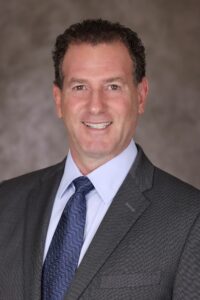BLOG
 For the second time in the last several months, firm shareholder Gary M. Mars authored an op-ed editorial column in the Miami Herald on a vital new piece of federal legislation to provide for condo-safety financing options for condominium associations and their unit owners. Gary’s new article, which is featured in today’s op-ed Opinion page of the Herald, discusses what he calls a perfect storm of rising insurance, inspections, repairs and reserves expenses that could jeopardize the finances of many South Florida condominium associations and force some owners to either sell or face the prospect of foreclosure. It reads:
For the second time in the last several months, firm shareholder Gary M. Mars authored an op-ed editorial column in the Miami Herald on a vital new piece of federal legislation to provide for condo-safety financing options for condominium associations and their unit owners. Gary’s new article, which is featured in today’s op-ed Opinion page of the Herald, discusses what he calls a perfect storm of rising insurance, inspections, repairs and reserves expenses that could jeopardize the finances of many South Florida condominium associations and force some owners to either sell or face the prospect of foreclosure. It reads:
. . . A recent Palm Beach Post article chronicled how the Portofino South Condominium in West Palm Beach received an 82% increase from its insurance carrier, while its directors and residents had expected an increase of about 25%, which the community got in 2021.
Mary McSwain, 67, who bought her one-bedroom unit in January, said her monthly dues are going from $914 to $1,347.
For most communities, increased insurance costs will come first, but increases created by the provisions of the state (and some county) mandates for structural inspections, repairs and reserve funding are sure to follow. Those provisions do not start until 2024 for the affected buildings, but association boards would be well advised to begin securing and vetting offers from qualified professionals for their long-term budgetary planning.
A federal proposal introduced recently by Florida U.S. Reps. Charlie Crist and Debbie Wasserman Schultz, together with another bill from the same lawmakers introduced in April, could provide relief for communities in immediate need of substantial repairs and renovations. The new Rapid Financing for Critical Condo Repairs Act of 2022 would let the U.S. Department of Housing and Urban Development’s Federal Housing Administration insure condominium association building rehabilitation loans issued by private lenders.
Condominium associations often finance unanticipated building repairs with loans that typically include prepayment penalties and have terms ranging from 10-15 years. Some of these loans even have a balloon payment due at year 10, forcing associations to refinance the remaining debt.
The Act would authorize the FHA to insure condominium association loans collateralized by assessment income, real property or a combination of the two. The loans would be reserved exclusively for rehabilitation, alteration, repair, improvement or replacement of a condominium’s common systems, infrastructure and facilities.
The legislation allows FHA insurance for up to 90% of the repair/rehabilitation costs, and the loans would have 30-year terms, fixed-interest rates and no prepayment penalties. Also, FHA-insured loans typically are eligible for sale in the secondary market, making them more attractive for lenders because such sales lower their potential risks from falling interest rates.
FHA-insured loans tend to have a lower interest rate for borrowers than typical bank portfolio loans, as lenders do not carry the full risk of a default. And, because the loans do not have prepayment penalties, condominium associations would be able to refinance if interest rates fall.
The Securing Access to Finance Exterior Repairs (SAFER) in Condos Act, filed in April, would allow condominium owners to finance critical building repairs with their own FHA-backed loans, which they could combine with their existing mortgage debt into a new 30-year FHA-insured loan. Those who do not have a mortgage or would prefer to leave it as is would have the option of accessing the FHA Property Improvement Program to finance such an assessment over a 20-year term.
Such FHA-backed loans for condominium associations as well as their individual unit owners would let them secure the best possible rates and terms to quickly finance and undergo urgent structural rehabilitation projects. . .
Gary concludes his article by noting that these proposed government-backed financing programs for critical repairs for condo associations and individual unit owners promote public safety and help to prevent potential catastrophes, thereby serving an immense public good that merits full government support. He writes that in today’s polarized political environment, it will be essential for lawmakers on both sides of the aisle to co-sponsor these proposals, giving them the bipartisan support they will probably need for passage.
Gary and our firm’s other South Florida community association attorneys are urging everyone to contact their U.S. representative and encourage them to co-sponsor and support these bills.
Click here to read the complete article in the Miami Herald‘s website.

